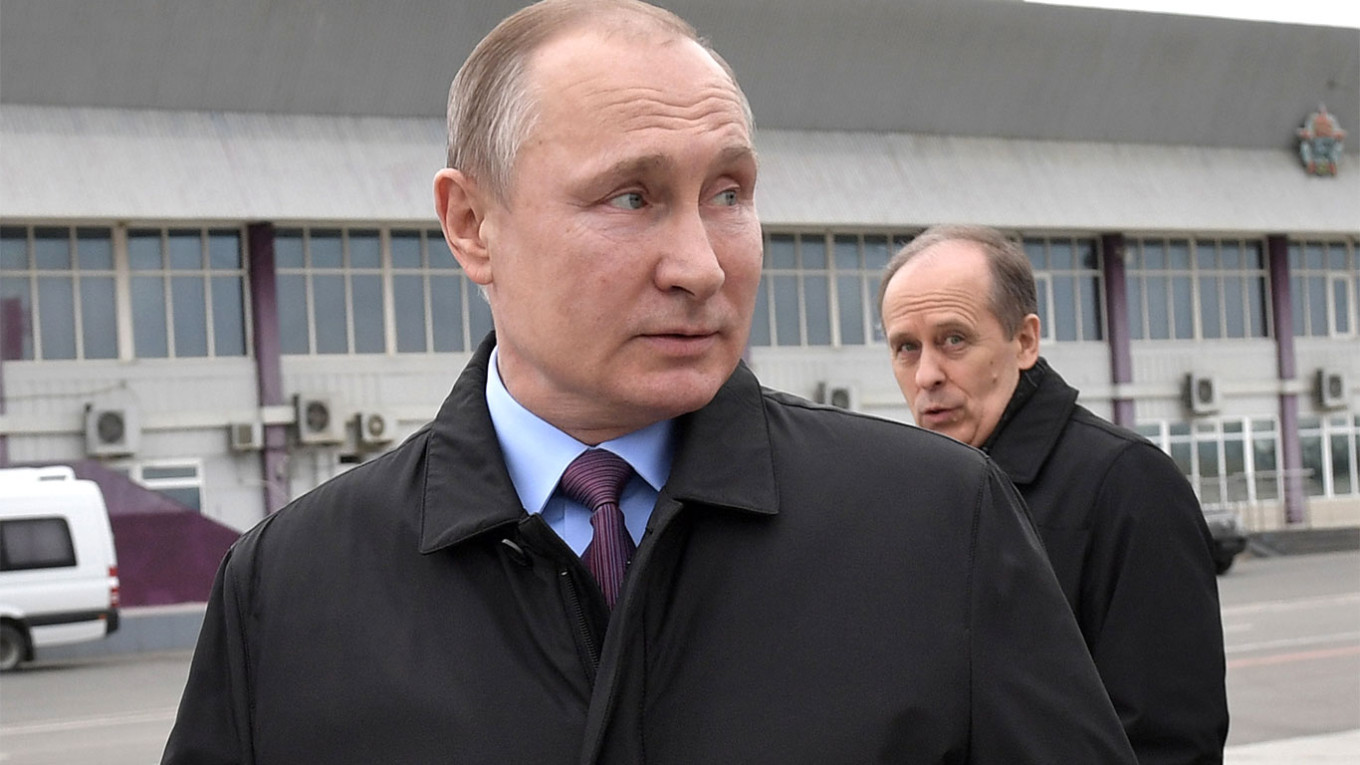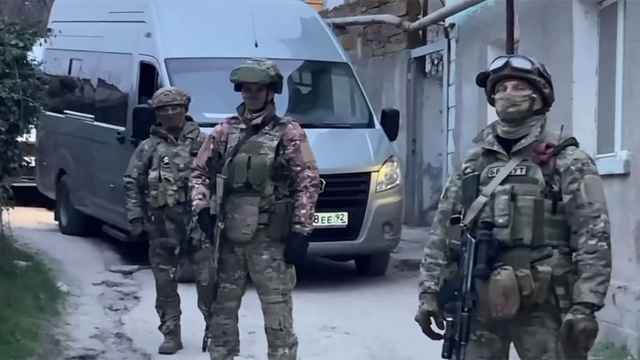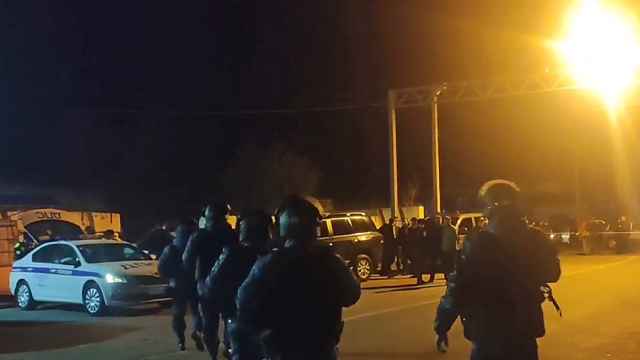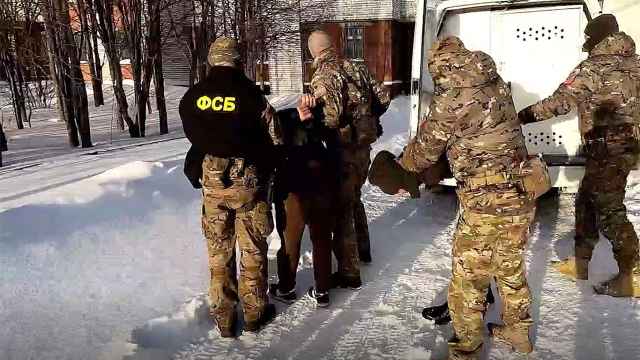Exactly 25 years ago, the man widely regarded as President Vladimir Putin's political instructor was hiding in Paris from the Russian police. Anatoly Sobchak, the former mayor of St. Petersburg, was suspected of corruption and was helped to leave Russia on a Finnish private jet by KGB lieutenant colonel Vladimir Putin, who had just been appointed director of Russia's FSB.
When I interviewed him on my program “Top Secret”, Sobchak seemed a bit confused and unable to imagine the future. But that evening in the lobby of the Hôtel Ambassadeur we talked about the future. As we were leaving, Sobchak said to me, “I understand why Yeltsin chose Putin as his successor — he would never betray you. But I also understand that once he has power, Putin will never give it back to anyone.”
The meaning of these words was then understood by very few people, but Sobchak did not hope to be heard.
A quarter of a century later, Vladimir Putin's supporters and critics understand exactly what Sobchak meant. Putin has only one successor — himself. The transition of power, about which so many political scientists both in Russia and abroad have speculated, ended in the elections this March.
If Putin still holds power in 2036 — which the sham 2020 referendum enabled him to do — he will surpass Josef Stalin and Catherine the Great to become the longest-ruling leader of Russia. After the outbreak of war with Ukraine, when Russian Foreign Minister Sergei Lavrov was asked whether Putin consulted with him, he replied, “Putin has three advisers — Ivan the Terrible, Peter the Great and Catherine the Great.”
Having placed himself on the level of the tsars, Putin remembers that power changed only after the monarch’s death. To continue this political tradition, however, two conditions must be met. The tsar must be reliably protected from assassination and must never give up the throne himself.
When Putin became president in the spring of 2000, at a closed board meeting of the Russian FSB, he said from the podium: “The KGB's task of infiltrating the Russian government has been accomplished.” It is unclear whether he was joking or serious.
But from that moment on, the influence of the FSB on all the processes taking place in the country grew every year. Until May of this year, the only state institution that was not subject to the FSB's influence was the army. Putin considered the military to be the most important pillar of power, but he never trusted it 100%.
When Putin approached Sergei Shoigu in November 2012 to take over as defense minister, Shoigu set one condition: that there be no FSB officers around him in the army leadership. Putin agreed, receiving in return a military leadership personally loyal to him. But to balance controlled conflicts within the Defense Ministry, Putin appointed General Valery Gerasimov, considered a close ally of Shoigu, to the post of Chief of the General Staff in the same fall of 2012. The time of the security services, for whom control over the army and its budgets was a cherished dream, had not yet arrived. It was to come later.
Until February 2022, there was a conditional truce between the influential clans in the Russian government. But two years ago, the FSB, whose reports (as well as those of the military) had convinced Putin that victory in Ukraine would be easy, opened its own personal front — an internal one. The FSB's task was to take control of all spheres of life in Russia, to destroy the opposition and its leaders, to introduce censorship, to subjugate the industrial sector, financial institutions, culture and, of course, the military.
After Putin's victory in the heavily corrupt presidential election, the Chekists went on the offensive. As journalists at Agenstvo calculated, 21 criminal cases were opened against officials and heads of state companies between March and April alone. Not only was Deputy Defense Minister Timur Ivanov arrested, but also Gennady Sakharov, an executive at the state Rosatom corporation, and Igor Andreev, vice president of Rossiya Bank. The truce among the elites is over.
But despite what the Kremlin says, this is not a fight against corruption. It is a fight for power.
By the beginning of Putin's fifth term, the FSB had won. Officials from the Culture Ministry can tell you that all films are reviewed by two plainclothes officers before a rental certificate is issued. Raw materials businessmen will tell you how the new board of directors includes undercover FSB officers. The work of the presidential administration is controlled by the FSB’s Second Service (that combats terrorism and “protects the constitutional order”), and the Security Council is staffed only by security officers. To paraphrase Putin's quote from 2000, Lubyanka has infiltrated the country's hierarchy of power more successfully than at any other point in history.
Therefore, it was not difficult for the FSB to lobby for its employees to be exempt from military service, remaining to guard the political comfort of the regime in the rear. This decision caused serious irritation among the Defense Ministry and other institutions of power. But Putin sided with his former colleagues from the FSB, whom the historian of special services Andrei Soldatov once called “the new nobility.”
Historically, the Russian nobility was a military class. During the War of 1812, when the Russian army was defending its country rather than attacking a neighbor, representatives of the nobility led the fight. Now, the elites from the FSB, Interior Ministry, Federal Penitentiary Service, and special services remain at the rear.
Their real task in the conditions of the military-political “special operation” is not to protect the people, but to secure the regime. But in fulfilling this task, there is an inevitable temptation for the aforementioned elites to become an integral part of the state, and in the long run — to lead it.
However, this battle of the bulldogs in Moscow may deal the Kremlin a blow far more severe than the drones and missiles coming from Ukraine. The Russian system of political power is now organized in such a way that any bias in the direction of one of the clans can lead to the collapse of the pyramid or a coup by the siloviki.
And it is not by chance that today. Mikhail Khodorkovsky wrote that in 1996 Russia did not face a choice between Yeltsin and Gennady Zyuganov, the Communist Party candidate. The choice was between electing Yeltsin and declaring a state of emergency. The FSB and FSO were in favor of a state of emergency that would have turned Yeltsin into a puppet of the security services. “By defending the rejection of the state of emergency, we postponed the FSB's rise to power for 8-12 years.”
Putin's new term is just beginning. It will take place under the full control of the FSB, whose presence in government at all levels is growing constantly. Data suggests that in the last years of the Soviet Union, only 3% of officials in top government positions were representatives of special services. During Yeltsin's rule, the figure was over 30% and has risen to 70-80% today.
Putin's regime has become a dictatorship of the security services, which will try to ensure the sustainability of this model of government for as long as possible. But that will only be the case until the rising clan of young siloviki sees the 72-year-old president as a weak link in the chain of power.
A Message from The Moscow Times:
Dear readers,
We are facing unprecedented challenges. Russia's Prosecutor General's Office has designated The Moscow Times as an "undesirable" organization, criminalizing our work and putting our staff at risk of prosecution. This follows our earlier unjust labeling as a "foreign agent."
These actions are direct attempts to silence independent journalism in Russia. The authorities claim our work "discredits the decisions of the Russian leadership." We see things differently: we strive to provide accurate, unbiased reporting on Russia.
We, the journalists of The Moscow Times, refuse to be silenced. But to continue our work, we need your help.
Your support, no matter how small, makes a world of difference. If you can, please support us monthly starting from just $2. It's quick to set up, and every contribution makes a significant impact.
By supporting The Moscow Times, you're defending open, independent journalism in the face of repression. Thank you for standing with us.
Remind me later.








